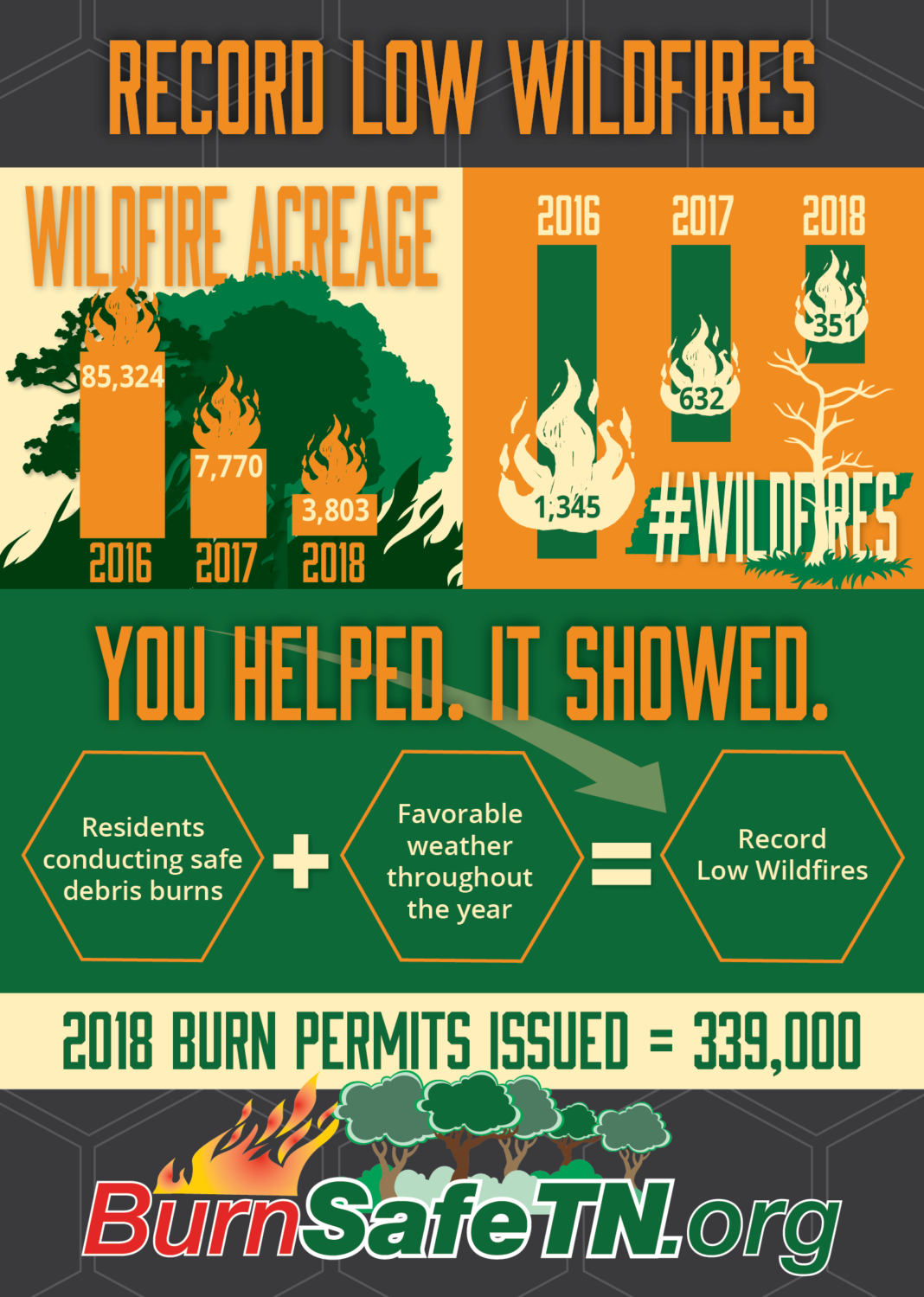Burn permits required through May 15
NASHVILLE– Tennessee is celebrating a record to be proud of. Thanks to favorable weather and citizens who burned debris safely, 2018 saw a record low number of wildfires.
The Tennessee Department of Agriculture Division of Forestry is working to continue that trend throughout 2019 by reminding citizens that if they plan to burn outdoors, a burn permit is required.
“The abundant rainfall throughout the year was certainly a factor for the record low in 2018,” State Forester David Arnold said. “However, when residents obtain a burn permit and follow the instructions that go along with the permit, it’s less likely for a fire to accidentally escape. That makes us all safer.”
The permitting system provides a way for landowners to know when, where, and how it is safe to burn.
Obtaining a burn permit is free, fast, and simple. If you are burning a leaf or brush pile that is smaller than 8 feet by 8 feet in size, our online system provides a quick and efficient way to apply. For a larger burn, call your local Division of Forestry burn permit phone number Mon. through Fri., 8 a.m. – 4:30 p.m. The online system and burn permit phone numbers can be found at www.BurnSafeTN.org.
More than 300,000 permits are issued each year, and they are only issued when conditions are conducive to safe burning. If you live inside city limits, there may be additional restrictions, so check with your municipality before you burn.
Burning without a permit is a Class C misdemeanor punishable by up to 30 days in jail and/or a fine. Wildfires caused by arson are a class C felony punishable by 3 to 15 years in prison and up to $10,000 in fines. Anyone with information about suspected arson activity should call the state Fire Marshal’s Arson Hotline at 1-800-762-3017. Cash awards are offered for information leading to an arrest or conviction. To report illegal burning, please call 1-888-891-TDEC.
Visit www.BurnSafeTN.org for additional tips to burn safely and to protect your community.
The Division of Forestry promotes the wise use of forest resources by assisting landowners, fighting wildfires, providing quality seedlings, monitoring insects and diseases, improving urban forests, managing state forests, protecting water quality, and collecting forest inventory data. The Division also works to promote primary and secondary forest industries to stimulate the state’s economy. Visit http://www.tn.gov/agriculture/forests for more information.








